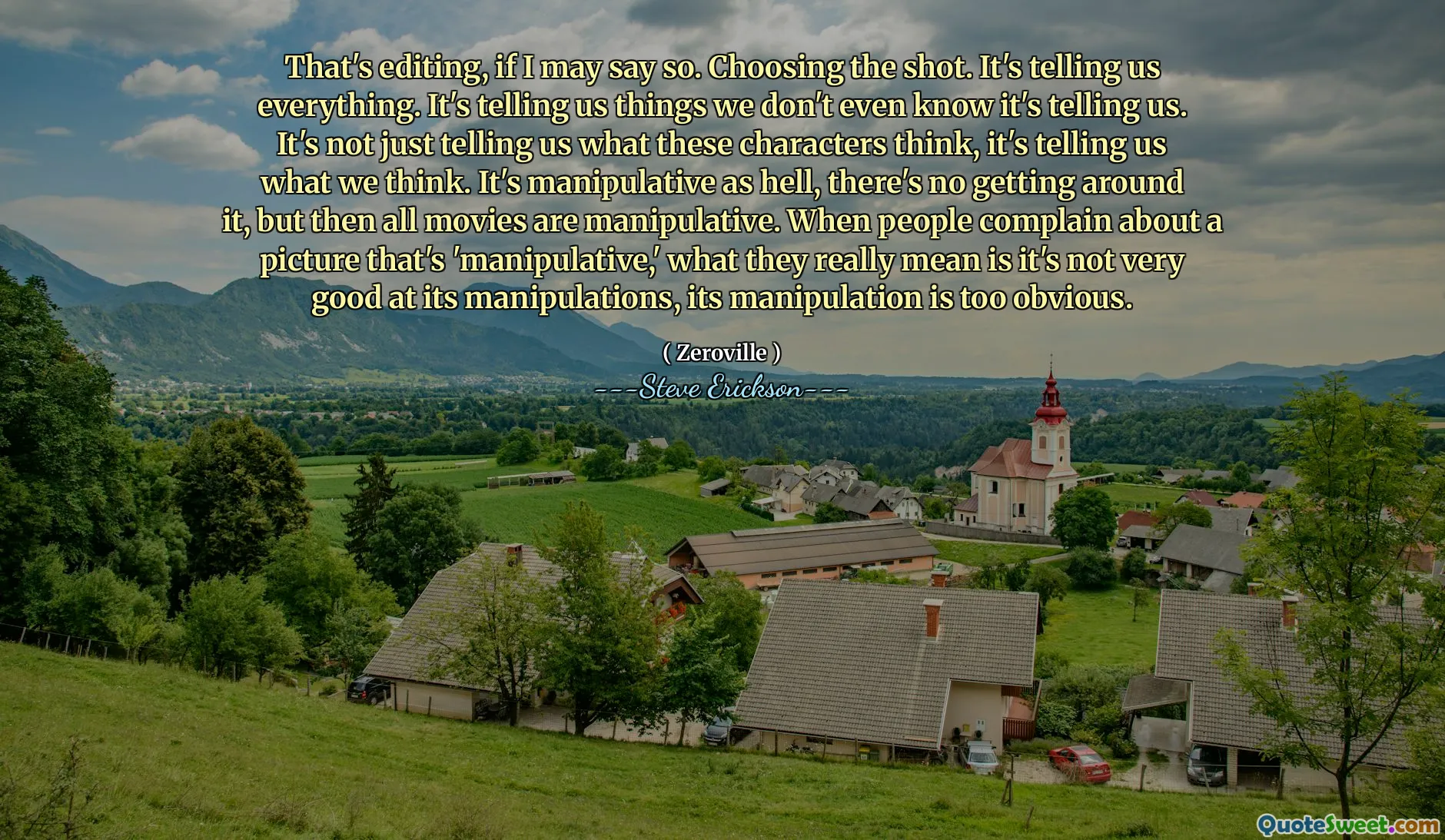
That's editing, if I may say so. Choosing the shot. It's telling us everything. It's telling us things we don't even know it's telling us. It's not just telling us what these characters think, it's telling us what we think. It's manipulative as hell, there's no getting around it, but then all movies are manipulative. When people complain about a picture that's 'manipulative,' what they really mean is it's not very good at its manipulations, its manipulation is too obvious.
In the context of editing film, the act of choosing shots plays a critical role in storytelling. It reveals underlying emotions and thoughts, offering insights that may not be immediately apparent. This selection not only reflects the perspectives of the characters but also influences the audience's interpretations, shaping their feelings and reactions to the narrative. The layers of meaning conveyed through careful editing can operate on a subconscious level, guiding viewers in ways they may not fully recognize.
However, the nature of this manipulation can provoke mixed reactions. While all films employ some degree of manipulation to engage the audience, complaints often arise when the techniques feel too overt or clumsy. Such feedback typically stems from a perception that the film fails to effectively execute its manipulative strategies. The author, Steve Erickson, suggests that the quality of manipulation determines its reception, highlighting the intricate balance editors must maintain between subtlety and impact.









